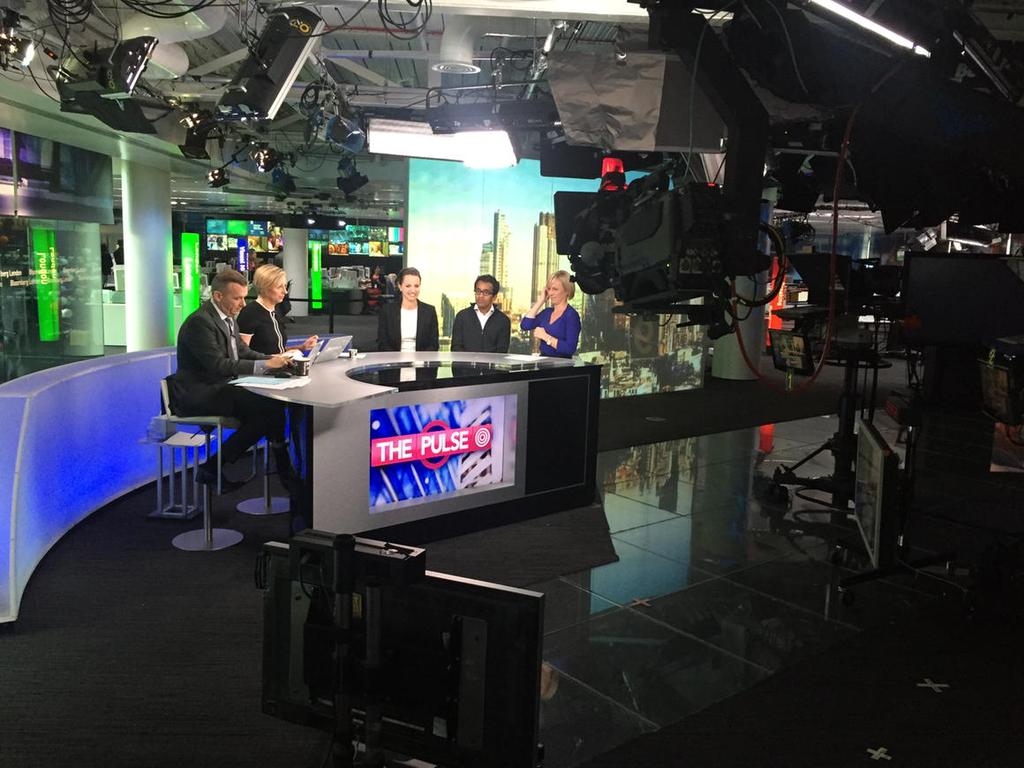I was on Bloomberg today, discussing the recent (great) Facebook results and the (not so great) Twitter ones.
I have a bunch of issues with these two companies being compared as they are very different. I have even more issues with the extreme boom/gloom reaction the Street and the City generally have to public market reporting that I suspect comes from companies being judged on timelines based primarily on banking bonus cycles. But the most interesting bit of the conversation for me was when we talked a bit about the effect of a Founder being the in the driving seat.
My fellow panellist Eleni Marouli from IHS backed Mark Zuckerberg strongly saying that he’d earned the right to ask for patience. She pointed to his record of running the company in a flexible way that has seen, for example, mobile revenues go from 0% to 75% in about three years.
Not great for news live TV, but I couldn’t agree more. Technology moves so fast that even companies with an insane volume of momentum (Facebook has 1.5 billion monthly users!) have to remain agile and reactive.
Sometimes that means foregoing short term profits and sometimes it means admitting missteps before quickly correcting them.
Founder Mojo — the Good
This need for agility is why we at Balderton place a lot of focus on the Founders we work with. Successful Founders start companies from a very personal place. At the heart there’s a passion for a new idea, in every step there’s an obsession that drives every day. This passion and obsession means great Founders do more than run a company — they live and breathe it and its market. They are viscerally in tune with what they think comes next. And, especially once they have the confidence of a few early wins behind them, they develop a conviction in those opinions that allows them to lead with confidence and purpose.
I call this state of mind Founder Mojo and I think it is really important.
It isn’t impossible, of course, but I think it really is very hard for the MBA brigade to capture and recreate Founder Mojo. Professional managers do a great job of optimizing what you already have, but they rarely have the vision and the guts to take the big leaps that allow you to survive a major disruption. For Facebook, mobile was that disruption at IPO and Zuckerberg has now emphatically turned that into a huge opportunity and he’s learned from that — he saw image-centric social conversation (Instagram), direct chat messaging (Whatsapp) and, more controversially VR (Oculus Rift) coming and made his moves quickly and decisively. How many professional managers would have the credibility or sheer gall to buy Instagram for $1BN or Whatsapp for over $20BN?
This is the Good about Founder Mojo, but there’s more.
Founder Mojo — The Bad
The primary Bad with Founders is that the focus that makes them so good at some things makes them really bad at a bunch of other things. Speaking as an ex-Founder CEO myself there were plenty of things that I was terrible at (I’m not going to embarrass myself with details here yet — for a future post!) and so for every thing we did right, we did lots wrong too.
The clear, simple solution to this is to try and find a Founder who recognizes their short-comings and works hard to plug the gaps with others who excel in those areas. Reading about how keenly Zuckerberg pursued Sheryl Sandberg in Lean In shows this …. he knew she had something he didn’t have and he was willing to do whatever it took to get her on team. A few years on, I’d say he’s been proven right — she’s clearly awesome at what she does and has been an incredible partner for him. There are plenty of other examples — Tim Cook, Eddie Cue, Jonny Ive and others filled the gaps around Steve Jobs; Steve Ballmer and Nathan Mhyrvold around Bill Gates and of course the Google Triumverate of Brin, Page and Schmidt.
We work hard on this with our companies at Balderton. We don’t turn up and tell Founders what to do, but when they are ready, they work with Gilles and our talent team to extend their capability by adding the key hires that fill the gaps they have and help them grow while maintaining the focus and culture that’s been the secret of their success to date.
Founder Mojo — The Ugly
The other problem one sometimes encounters with obsessive, focused CEOs is a personality type that can make them very hard to work with. Some are narcissistic, others adept manipulators. Again, not a topic that I want to cover in huge detail today (it’s a series of posts in its own right), but the Harvard Business Review captured this well a decade ago and what Michael Maccoby said then still holds true today in some of the highest profile successes in tech. Again, the key is self-realization and the building of a team that balances the potential negatives of these character traits. And, for what it’s worth, it seems many people find working for occasionally flawed characters compelling despite the pitfalls.
It takes all sorts to build a successful company and, just as hard, keep a successful company successful. Employees, experts and yes, even MBAs, all play an important role in that but if I have to pick one thing I want, it’s a strong Founder who’s still got her Mojo and is as obsessed today as she was the day it all began.








